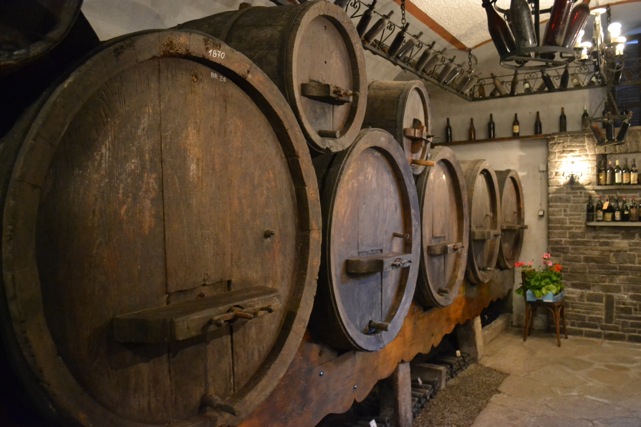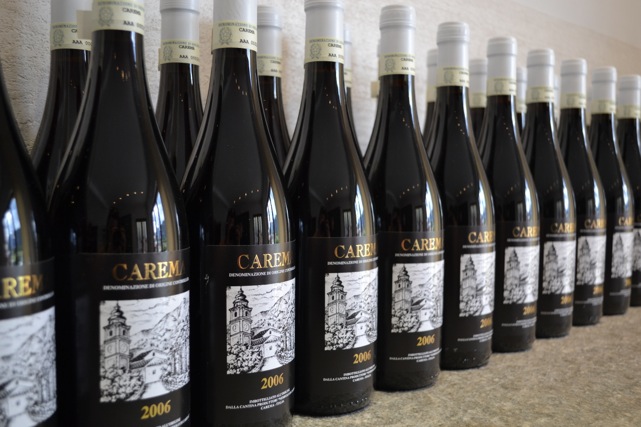A Summer in the Field
by Rachel Black
 Silvio reached up and pulled down a curled up leaf from one of his vines. He unfurled the leaf to reveal the larva of a leafroller (Platynota stultana). Pests like this, he explained, could do serious damage to a vineyard. He named off the various fungal diseases he regularly has to combat as the grape growing season progresses. Winegrowing was starting to seem more like chemical warfare than some bucolic agricultural activity. Walking through the steep vineyards of Donnas on a warm June day, I learned a great deal about vineyard management, changing traditions, and one man’s reality as he worked amongst the vines—all things that are difficult to learn from only reading books.
Silvio reached up and pulled down a curled up leaf from one of his vines. He unfurled the leaf to reveal the larva of a leafroller (Platynota stultana). Pests like this, he explained, could do serious damage to a vineyard. He named off the various fungal diseases he regularly has to combat as the grape growing season progresses. Winegrowing was starting to seem more like chemical warfare than some bucolic agricultural activity. Walking through the steep vineyards of Donnas on a warm June day, I learned a great deal about vineyard management, changing traditions, and one man’s reality as he worked amongst the vines—all things that are difficult to learn from only reading books.
As an anthropologist, fieldwork is the cornerstone of my research. By talking to and working with people, I learn about local issues, customs, and beliefs. Last summer’s visit with Silvio was a first step in learning more about cooperative wine production in the towns of Donnas and Carema in Northern Italy.

Historically, the production and sale of wine has been a central part of the local economies of these two towns. However, local and global economic shifts over the past century have had a striking impact on wine production, and in turn, the social and cultural practices associated with agriculture.

Wine cooperatives have played a central role in helping local winegrowers to adapt to these changes while maintaining the cultural practice of growing grapes. During May and June, I carried out preliminary research in preparation for a larger project I hope to pursue next summer. My days were spent in the vineyards learning about local grape growing techniques, interviewing members and employees of the wine cooperatives, and doing archival research. I left Italy with copious amounts of data in the form of fieldnotes, photos, and recordings.

My next job was to make sense of the data I had gathered. What sorts of themes were emerging as I talked to the various actors involved in winegrowing? I headed to the library where I reflected on my field experience, conducted a literature review, and read plenty of secondary sources.

I decided my research should have the following objectives:
- To consider what cultural practices are preserved or challenged when cooperative models become the central form of production
- To understand whether cooperatives can provide an alternative model for sustainable economic development given the current European economic crisis
- To focus on the role of cooperatives in fostering environmental sustainability and the preservation of intangible heritage
Next summer I hope to be working next to Silvio and other cooperative members in Carema and Donnas as they tend their vines and harvest their grapes. It is through apprenticeship and informal conversation that I hope to gain a better understanding of the inner workings of local culture. Time spent in libraries and archives is invaluable, but there is no better way to learn than by doing.
Rachel Black is Assistant Professor and Academic Coordinator of the Gastronomy Program at Boston University. She is an Associate Editor of Food & Foodways and her new book, Porta Palazzo: The Anthropology of an Italian Market, was published earlier this year.